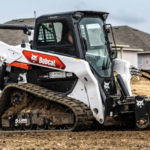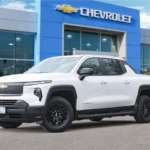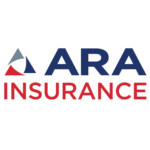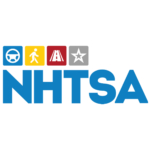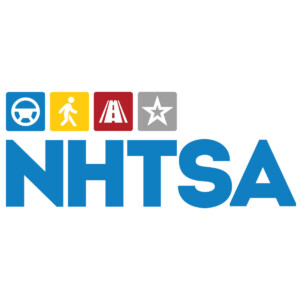 While automotive recalls in the second quarter of 2024 declined significantly from Q1, the total number of recalled vehicles for the year has soared past 14 million, according to the latest quarterly recall report from recall management platform BizzyCar.
While automotive recalls in the second quarter of 2024 declined significantly from Q1, the total number of recalled vehicles for the year has soared past 14 million, according to the latest quarterly recall report from recall management platform BizzyCar.
The report, which analyzed data from the National Highway Traffic Safety Administration and U.S. Department of Transportation, found the 115 recalls issued in Q2 affected more than 4.6 million units.
Added to the 206 recalls impacting 9.7 million units during Q1, that raised the total for this year to 14.4 million recalled vehicles, which BizzyCar said “underscores the scale of the issue and highlights the potential safety risks for millions of American vehicle owners.”
During Q2, Chrysler led all manufacturers with 14 recall campaigns, followed by Ford with 12 and Kia America with eight. Not surprisingly, those automakers also led in number of affected vehicles, with Ford reporting 1,380,879 vehicles — many of them, the report said, due to “persistent electrical system issues” — Chrysler at 1,261,023 and Kia at 468,876.
Ford also has the most vehicles affected by recalls for the full year, with 3,582,962 units, well ahead of Tesla’s 2,552,178 and Chrysler’s 2,224,398.
The system most cited as cause for as recall in Q2 was back over prevention, which affected 1.6 million potential vehicles, followed by electrical system problems (814,223) and power train issues (586,211). The reported noted seats, air bags and seat belts combined to produce more than 1 million recalls, “indicating a variety of potential safety hazards.”
The report also tracked what BizzyCar termed “significant vehicle recalls” that raise “ongoing concerns for driver safety and consumer protection.”
Among those cited were Kia’s critical “Park Outside Advisory” for 462,869 vehicles due to potential fire risks from overheating power seat motors, and “Do Not Drive” advisories from Kia and Mercedes-Benz, among others, for severe safety defects.
Other recalls called out as “noteworthy” were a recall of more than 1 million 2022-2024 Chrysler Pacifica and Voyager models due to rearview camera image display issues, Ford’s campaign addressing potential unexpected downshift issues in more than 550,000 2023-2024 Ford Explorer and Lincoln Aviator models, and Volkswagen’s recall of more than 270,000 2022-2024 Audi Q5 models for front passenger airbag deployment issues.
“In a recent Bloomberg report, the number one reason consumers cited for not taking their vehicle in for potentially hazardous and even deadly recalls is a lack of convenience,” BizzyCar vice president of marketing Hunter Swift said. “This year alone, 12,837,245 vehicles have been affected by recalls that pose a crash risk or increase the risk of injury.
“As an industry we need to rise to this challenge and offer consumers convenient ways to bring in these recalled vehicles by providing easy scheduling options, mobile service and other ways to mitigate the convenience factor and keep them safe on the road.”
Leading the Recall Count
In Q2 2024, Chrysler (FCA US, LLC) led with 14 recall campaigns, followed by Ford Motor Company with 12 recalls. Kia issued 8 recalls, while Toyota and Volkswagen each had 7 recalls. Mercedes-Benz and BMW followed with 6 recalls each, and General Motors, Hyundai, Jaguar Land Rover, and Tesla each had 5 recalls, indicating that safety concerns are still widespread across various automotive brands. Brands with zero recalls issued in Q2 2024: Subaru, Volvo, and Lucid.
Recalls by Manufacturer
- Chrysler (FCA US, LLC): 14 recalls
- Ford Motor Company: 12 recalls
- Kia America, Inc.: 8 recalls
- Toyota: 7 recalls
- Volkswagen Group of America, Inc.: 7 recalls
- Mercedes-Benz USA, LLC: 6 recalls
- BMW of North America, LLC: 6 recalls
- General Motors, LLC: 5 recalls
- Hyundai Motor America: 5 recalls
- Jaguar Land Rover North America, LLC: 5 recalls
- Tesla, Inc.: 5 recalls
- Nissan North America, Inc.: 4 recalls
- Rivian Automotive, LLC: 4 recalls
- Aston Martin The Americas: 3 recalls
- Fisker Group Inc: 3 recalls
- Honda (American Honda Motor Co.): 2 recalls
- Porsche Cars North America, Inc.: 2 recalls
- Karma Automotive LLC, Lamborghini (Automobili Lamborghini), Maserati North America, Inc., Mazda North American Operations, VinFast Auto, LLC: 1 recall each
Vehicles Most Affected
Ford Motor Company heads the list with over 1.3 million vehicles affected, mainly due to persistent electrical system issues. Chrysler also reported significant recall numbers, reflecting broad challenges in the industry:
- Ford Motor Company: 1,380,879 vehicles
- Chrysler (FCA US, LLC): 1,261,023 vehicles
- Kia America, Inc.: 468,876 vehicles
- Volkswagen Group of America, Inc.: 463,321 vehicles
- Toyota: 326,254 vehicles
- Honda (American Honda Motor Co.): 301,976 vehicles
- Tesla, Inc.: 152,177 vehicles
- Hyundai Motor America: 63,954 vehicles
- Mercedes-Benz USA, LLC: 48,842 vehicles
- Porsche Cars North America, Inc.: 31,703 vehicles
- Jaguar Land Rover North America, LLC: 26,825 vehicles
- Nissan North America, Inc.: 22,880 vehicles
- Fisker Group: 21,932 vehicles
- General Motors, LLC: 20,350 vehicles
- Mazda North American Operations: 9,914 vehicles
- BMW of North America, LLC: 9,862 vehicles
- Rivian Automotive, LLC: 4,850 vehicles
- Aston Martin The Americas: 3,632 vehicles
- Lamborghini (Automobili Lamborghini): 2,133 vehicles
- VinFast Auto, LLC: 284 vehicles
- Karma Automotive LLC: 269 vehicles
- Maserati North America, Inc.: 58 vehicles
Total Recalls by Brand Year-to-Date
For 2024, Ford Motor Company leads with the highest number of recalls, affecting 3,582,962 vehicles. Tesla, Inc. follows closely, with 2,552,178 vehicles recalled due to various safety concerns. Chrysler (FCA US, LLC) reported significant recalls as well, impacting 2,224,398 vehicles.
- Ford Motor Company: 3,582,962 vehicles
- Tesla, Inc.: 2,552,178 vehicles
- Chrysler (FCA US, LLC): 2,224,398 vehicles
- Kia America, Inc.: 1,120,958 vehicles
- Honda (American Honda Motor Co.): 1,081,822 vehicles
- Toyota Motor Engineering & Manufacturing: 1,010,944 vehicles
- General Motors, LLC: 646,949 vehicles
- Hyundai Motor America: 489,821 vehicles
- Volkswagen Group of America, Inc.: 463,321 vehicles
- Mercedes-Benz USA, LLC: 330,345 vehicles
- Subaru of America, Inc.: 228,723 vehicles
- Porsche Cars North America, Inc.: 31,703 vehicles
- Jaguar Land Rover North America, LLC: 26,825 vehicles
- Nissan North America, Inc.: 22,880 vehicles
- Fisker Group: 21,932 vehicles
- BMW of North America, LLC: 9,862 vehicles
- Mazda North American Operations: 9,914 vehicles
- Rivian Automotive, LLC: 4,850 vehicles
- Aston Martin The Americas: 3,632 vehicles
- Lamborghini (Automobili Lamborghini): 2,133 vehicles
- VinFast Auto, LLC: 284 vehicles
- Karma Automotive LLC: 269 vehicles
- Maserati North America, Inc.: 58 vehicles
Safety and Compliance
In Q2 2024, one recall from Kia included a “Park Outside Advisory” for 462,869 vehicles, indicating a potential fire risk and advising owners to park their vehicles outdoors to prevent property damage or personal harm. Since January 2024, 554,125 vehicles have received this advisory. Kia and Mercedes both issued “Do Not Drive Advisory” recalls. This year, 12,837,245 vehicles have been affected by recalls that pose a crash risk or increase the risk of injury, emphasizing the urgent need for effective risk mitigation by manufacturers and vehicle owners.
Critical Component Failures
The “Back Over Prevention” component leads with 1.6 million potential vehicles affected in Q2, followed by “Electrical System” issues affecting 814,223 vehicles. “Power Train” issues account for 586,211 recalls. Additionally, “Seats,” “Air Bags,” and “Seat Belts” together represent 1,032,325 recalls, indicating a variety of potential safety hazards.
Noteworthy Recalls in Q2 2024
These notable recalls highlight the ongoing safety concerns and issues that various automotive brands are addressing to ensure consumer safety and compliance with safety regulations.
- Chrysler (FCA US, LLC) has identified a risk in 2022-2024 Chrysler Pacifica and Voyager models due to rearview camera image display issues, affecting 1,033,433 vehicles.
- Ford Motor Company is addressing unexpected downshift issues in 2023-2024 Ford Explorer and Lincoln Aviator models, affecting 552,188 vehicles.
- Kia America, Inc. has identified a fire risk from overheated power seat motors in 2023-2024 Kia Sorento and Kia Sportage models, affecting 462,869 vehicles.
- Ford Motor Company is recalling 2023-2024 Ford Mustang Mach-E models due to loss of drive power from undetected low battery, affecting 456,565 vehicles.
- Volkswagen Group of America, Inc. is recalling 2022-2024 Audi Q5 models for front passenger airbag deployment issues, affecting 271,330 vehicles.
- Ford Motor Company is recalling 2022-2024 Ford F-150 models due to potential tail light failures, affecting 242,669 vehicles.
- Chrysler (FCA US, LLC) is addressing disabled electronic stability control issues in 2022-2024 Jeep Grand Cherokee models, affecting 211,581 vehicles.
- Honda (American Honda Motor Co.) is recalling 2021-2024 Honda Accord models due to rearview camera image display issues, affecting 187,290 vehicles.
- Toyota Motor Engineering & Manufacturing is recalling 2022-2024 Toyota Camry models due to curtain airbag deployment issues, affecting 145,254 vehicles.
- Tesla, Inc. is addressing seat belt warning system malfunctions in 2012-2024 Tesla Model S and Model X vehicles, affecting 125,227 vehicles.
- Fisker Group Inc. is recalling every 2023 Fisker Ocean sold in the U.S. due to door handles that may stick and prevent passengers from opening the door to enter or exit the vehicle. This recall and stop-sale affect all 2023 Fisker Oceans produced through May.
Historical Context
The historical recall data underscores a volatile trend in the automotive industry, with a noticeable uptick in the number of vehicles affected by recalls, especially in recent quarters. This pattern points to persistent challenges in maintaining automotive safety and quality assurance. Specifically, while Q1 2023 saw 267 recalls affecting over 8.3 million vehicles, the figures varied across the subsequent quarters, culminating in a significant rise in Q4 2023 with 269 recalls impacting over 15 million vehicles. This upward trajectory continued into Q1 2024, with 260 recalls affecting more than 9.7 million vehicles. The cumulative impact of these figures is stark: 14,400,804 vehicles have been implicated in recalls in just the first two quarters of 2024, highlighting a critical need for enhanced vigilance and improvement in automotive manufacturing and quality control protocols to ensure the safety and reliability of vehicles on the road.
Cost of Recalls for Manufacturers
The cost of vehicle recalls has become a significant financial burden for manufacturers, who are recalling more vehicles and spending more to fix them. Ford Motor Co. CEO Jim Farley recently stated that Ford, the most recalled automaker in America, is investing in advanced quality control technologies and enhancing supplier management to identify defects earlier. Ford set aside $1,203 per vehicle for warranty repairs last year, up from $591 in 2019. In total, Ford spent $4.8 billion last year fixing its customers’ cars. These recalls impact Ford’s bottom line and delay key model launches. By improving engineering standards and using data analytics, automakers aim to reduce recall frequency and financial impact, safeguarding their reputation and customer safety and satisfaction.
Opportunity for Dealers
Recalls present a significant opportunity for dealerships to not only enhance customer safety but also to boost service department revenue and customer loyalty. By effectively managing recall campaigns, dealers can increase service drive traffic, leading to additional upsell opportunities and improved service efficiency. Addressing recalls promptly builds trust with customers, showcasing the dealership’s commitment to their safety and well-being. Moreover, recalls provide a touchpoint for dealerships to re-engage with inactive customers, fostering long-term relationships and enhancing overall customer satisfaction.
Safety Advisories for Consumers
The NHTSA emphasizes the importance of not ignoring recall notices, as unresolved issues can lead to accidents or injuries. Vehicle owners are encouraged to check the NHTSA’s website (https://www.nhtsa.gov/recalls) for open recalls to stay informed and ensure their vehicles are safe.
Conclusion
Our mission at BizzyCar is to enhance road safety by offering the automotive industry an intelligent, comprehensive solution for managing service recalls efficiently, thereby improving recall completion rates, customer satisfaction, and dealership success. The data from Q1 2024 underscore the urgent need for this mission, revealing a concerning landscape in automotive safety with widespread defects impacting millions of vehicles, reflecting the complexity of modern vehicles and emphasizing the critical importance of vigilant safety oversight. Vehicle owners are encouraged to regularly check recall notices, a practice that aligns with BizzyCar’s commitment to promoting safer roads and informed vehicle ownership, ensuring vehicles remain safe and compliant.


